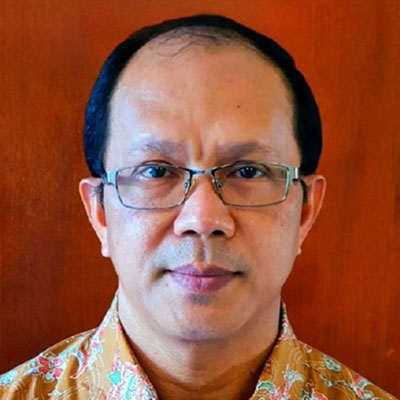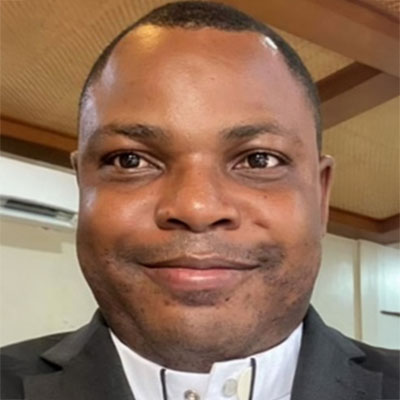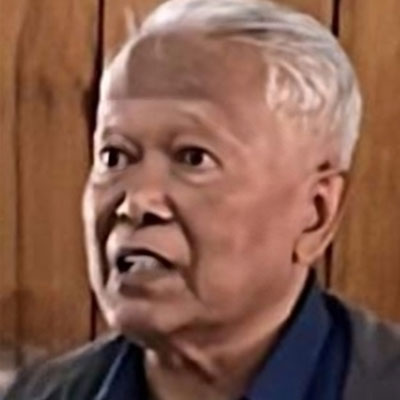 By Jozef Matton, cicm
By Jozef Matton, cicm
General Councilor
We don’t have to exert much effort in order to see that we are all quite different from each other.
During these last weeks and even last months, we have all been witnesses to a resurgence of racism and its concomitant violence. And this phenomenon does not concern only the United States. Apparently, for some people, to accept differences is not possible. However, something is obvious: we are all different and sometimes very different in a wide variety of areas. Twins can be less different from the physical point of view. And yet, each one will follow his or her own path and will build his or her life in his or her own way, possibly with a partner chosen by him or her and not with her twin brother or his twin sister.
It's no different in CICM: we're all different from each other. It is said that in Scheut, one can find a specimen of each species. It is with all these differences, that we must live together or, in order to better express it and in a more positive way, that we can live together.
Our differences: a challenge
We often find in our environment, both far and near, that differences can lead to disputes. We don’t have to go far away to witness it. Households sometimes suffer from it. Business relations are sometimes put under pressure because of differences among people. Religious communities are not spared from this predicament. We know all very well that living with others, and therefore with people different from us, is not always obvious, whether in religious communities or in families. And yet we easily say, "It wouldn't be a good thing if we were all alike: life would be too monotonous." Is a bouquet of flowers of the same variety and color the most beautiful or the contrary? Even on this point, opinions are different.
Variety, which involves differences, is therefore not always a source of harmony. To achieve this, we need some practice and exert some effort. Just as each member of an orchestra must train very hard in order to ensure that all instruments merge into one unit while preserving his or her own timbre and his or her specific place in the whole ensemble. Sometimes, one has to disappear. Who was not witness of this reality and who did not experience it in his own life?
Our differences: an opportunity
Living and, above all, living together means living with differences. This should not always lead to disputes, because these conflicts often involve only what is superficial. For one, it’s the skin while for another, it’s the shell. It is rare for the core to be the source of the dispute. It is precisely this core that can help us to transcend differences and to recognize variety as an enriching experience.
What about the core? In my own opinion, for all of us CICM, the core consists in our faith in Jesus Christ and in our free commitment to follow him together in his redeeming mission. We are neither committed for our own business nor for our own profit.
It is rather a common commitment. The very first article of our constitutions already says it: “The Congregation is an international religious missionary Institute. It was founded by Theophile Verbist and is dedicated to the Incarnate Word, under the name and patronage of the Immaculate Heart of Mary. (Const. Art.1)” By our commitment to the Institute, each of us becomes aware of this international character: it is the cornerstone of our CICM identity.
At the moment, we are around 800 confreres in our Congregation. It means 800 different people, each with his specific character and qualities. It is not possible to provide a list of the elements that make us different within our Congregation, within our Province and within our small or large communities. Generally, we did not create these differences ourselves. We have inherited many differences from our history. My experiences are never someone else's. My way of dealing with pleasant and unpleasant experiences is original and it is never the same as the way it is dealt with by somebody else. It makes me unique compared with another. It should be a reassuring experience. I don't have to be like the other. I can and I have the right to be myself. Conversely, the other should not be my double. There is no uniform model of being a CICM missionary.
Our Differences: a wealth
The reality of the rich history of our Congregation shows that the skins or shells are all very different. We have a wide variety, a mosaic of presences among people of very different cultures. Thanks to this diversity, the Congregation grew up and our deepest aspiration is that it can continue to grow in the future. We must not only accept these differences, diversity and variety, and to learn how to live with them. We must exert more effort to build and live a committed and fruitful missionary life with other confreres, even if a good number of us are perhaps more advanced in age. This major challenge for each of us will remain fundamental within our small or large community, within our Province and certainly within our Congregation. This is perhaps the greatest challenge for the future of our Congregation.
A temptation may arise: to use the fact that we are all unique to carry out our own project or to justify our mistakes and possible shortcomings. Unfortunately, this also happens. By doing so, we hide, we avoid questioning ourselves. We make little effort to recognize this problem, to accept its consequences, to work to solve it and thus to live in a new and more coherent way.
Some of us may say, "You have to understand, he’s like that." Perhaps it helps others to accept us as we are and to make it possible to "live together" with us; but let us not allow this to be an excuse that justifies everything. When I focus on my being different from the others, turning it into an ideology and using it as an argument to make excuses, I bring little added value to the community, whether big or small, far from it. You could only say that it is human. It becomes very difficult when I want to be the determining standard for judging or evaluating others. The other should not be the clone of myself, and my personality should not be a normative part of my view of others.
To interact with people, with confreres from different backgrounds and cultures allows us to learn how to discover the world, and how to live in it. It is always interesting to see that the world is neither limited to the recreation hall nor to our house, nor to our convent for example.
We can also develop useful qualities such as the tolerance, the respect for others, the recognition of the dignity of others and the openness of mind. The difference is an incredible wealth. It is enough to accept others, and to show them that I too deserve to be accepted because my culture is as interesting as others’.
As a conclusion
I would like to repeat a small part of the homily I delivered at the end of my canonical visit to AIFC in the Philippines in 2018.
"Of course, a great challenge for each of us is the multicultural life, not only in the formation houses, but also in the mission. We are experiencing it in our daily lives also here at the AIFC. Each of us has his own culture, even if we come from the same country! I was born into a farming family. I had a very clear experience from the beginning that confreres living in town had a culture, a way of acting and thinking that were different from mine.
My humble experience has taught me that:
• first of all, we must tolerate that other people's cultures are or may be different!
• But this is not enough. We must accept that the other peoples’ cultures are or may be different.
• But more than accepting, we must appreciate the cultures of others. Life and collaboration in a multicultural spirit are not possible if we cannot appreciate the culture of those with whom we are sharing our life and work.
• But appreciating the culture of others is not enough; we also need to learn from other peoples' culture! We can all learn from each other! The culture of others can teach us something, but for that we must be open to this possibility, because we are certainly not better than others. Some of you have clearly said to me that other people's culture has helped them to learn many things, even about themselves!”
We have a common commitment: to live together with our diversity. The rest is just the skin. Even if the skin is different, the nutritious part is there. It’s under the skin!
Dear confreres, in all our houses and communities, and even on our liturgical garments we find our motto: "Cor unum et anima una." Let us pray and strive above all so that this motto does not become just empty words!








